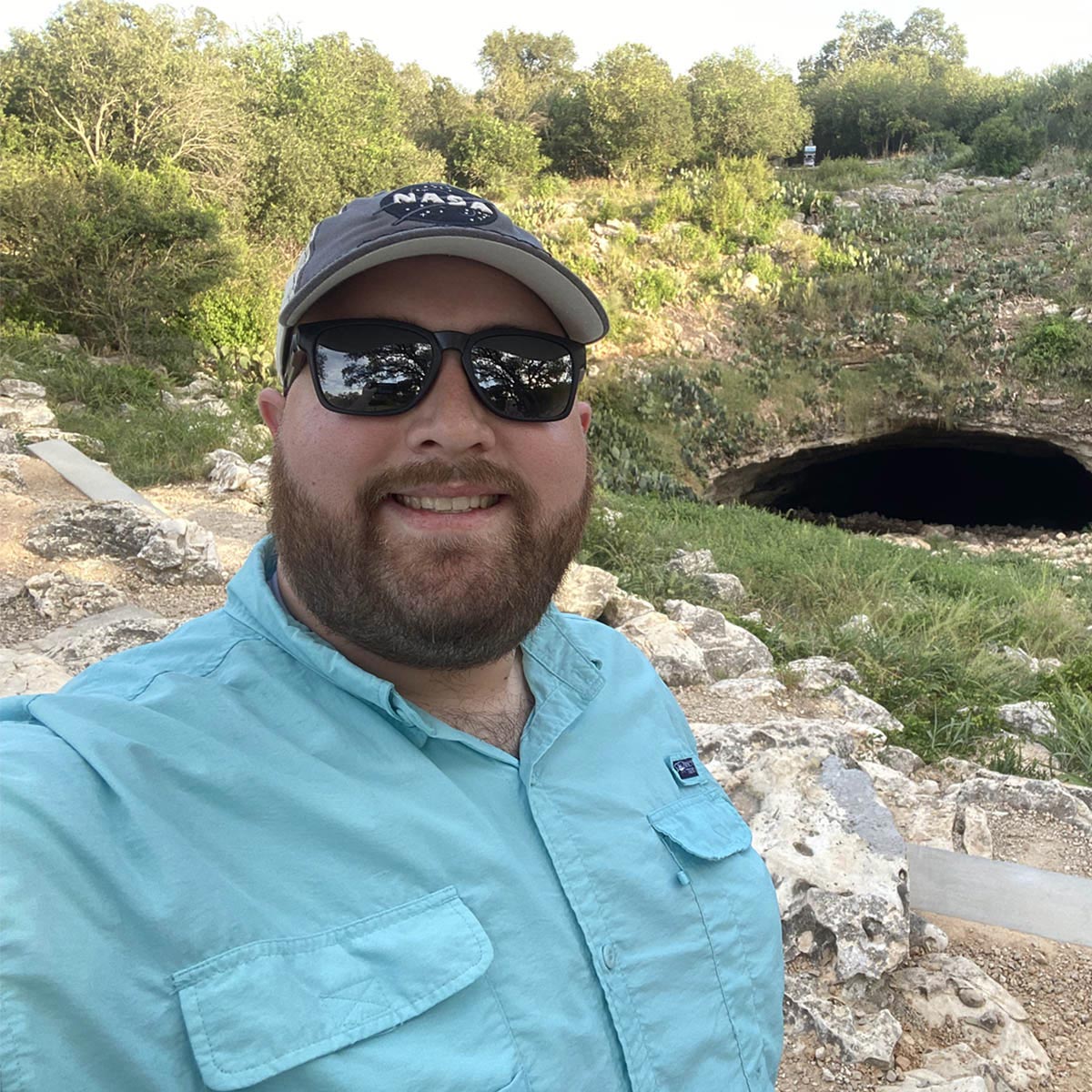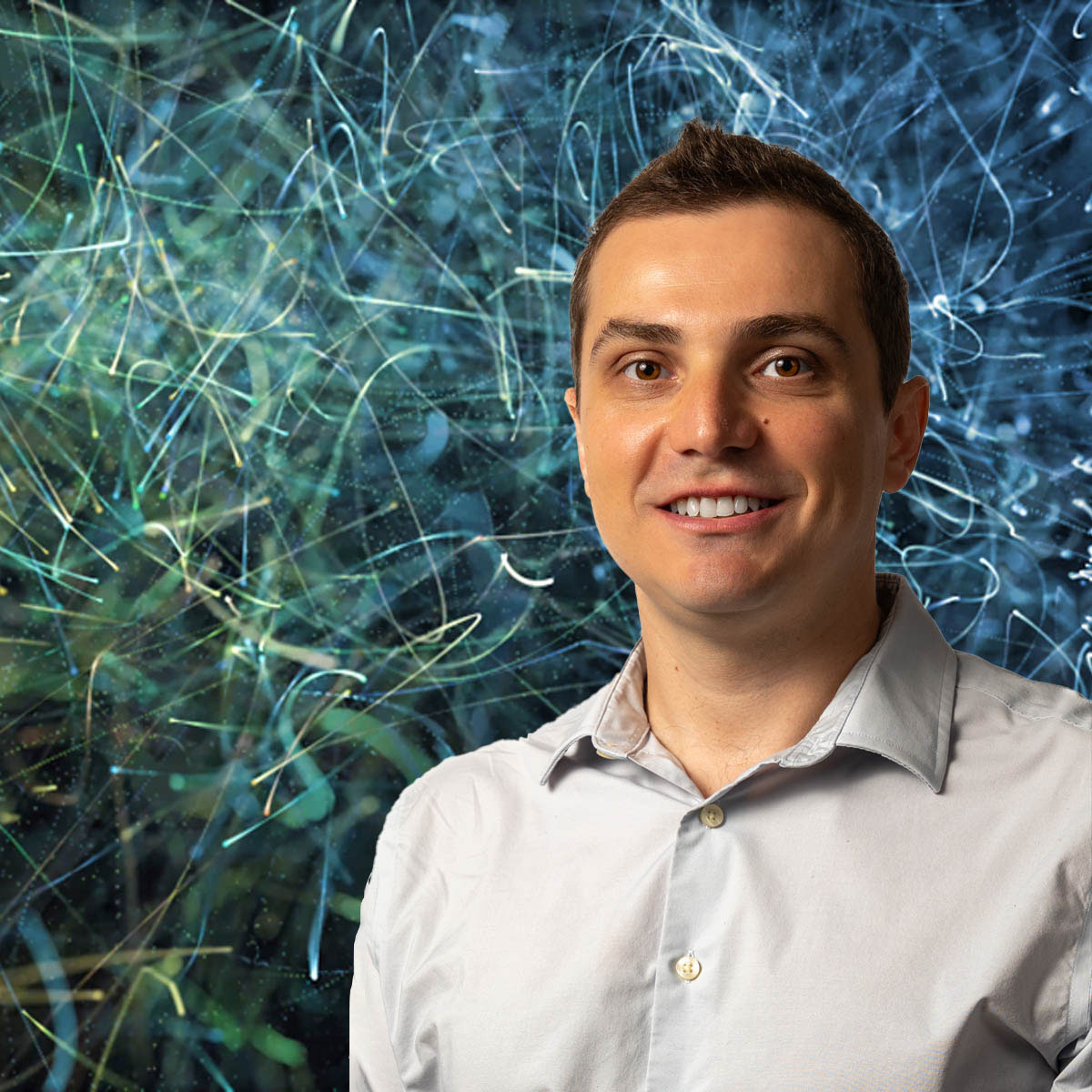Posted on May 7, 2020 by College of Sciences
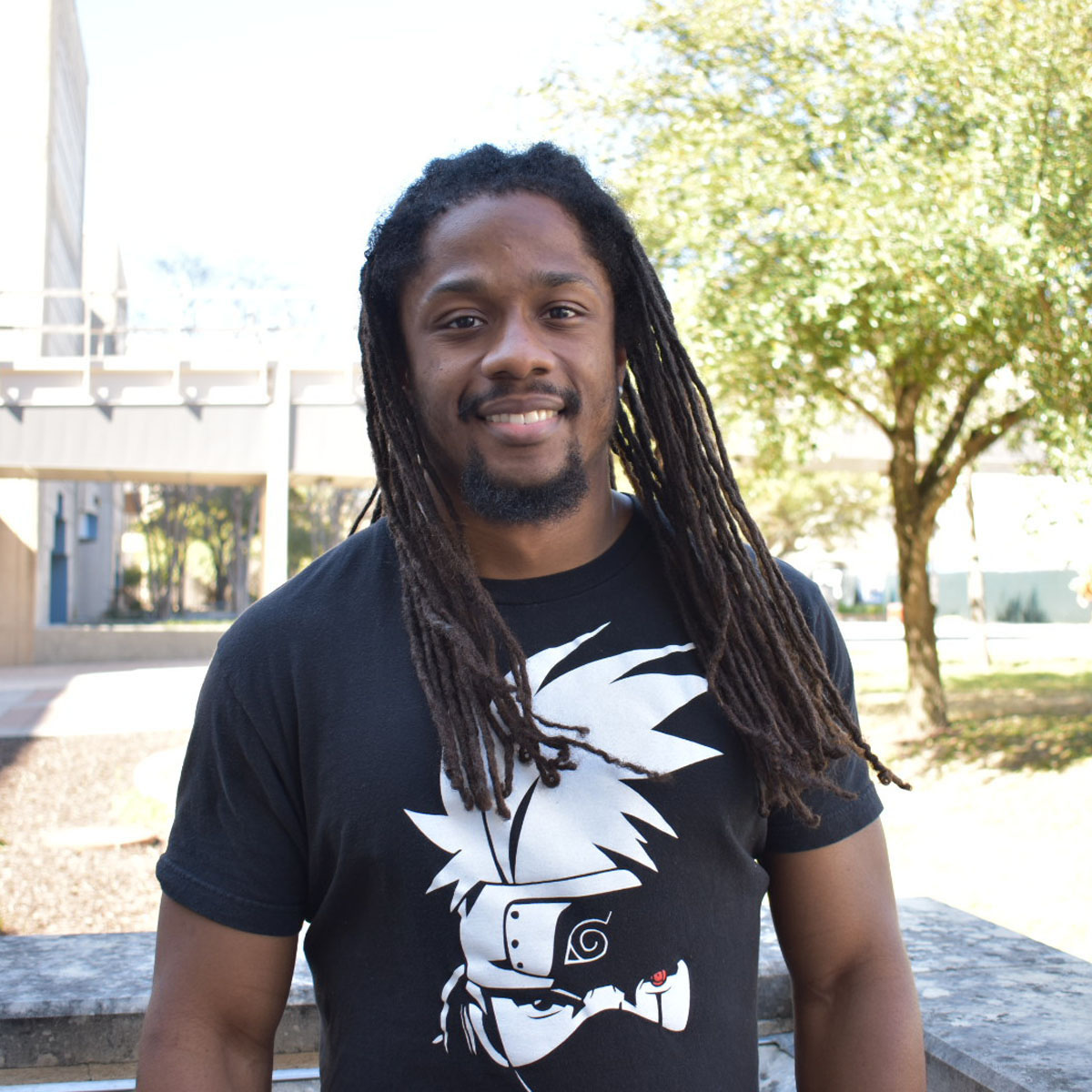
Finis Stribling, Physics M.S. Student
By Lauren Moriarty
Finis Stribling IV wants to understand everything. "Looking at physics, it's just fascinating how the majority of everything can be explained through science," he says. "When you get deep into it, there's a lot of things that are not answered but the fact that they aren't answered makes you want to learn more. It's like solving a giant puzzle." Finis is a physics master's student who plans to earn his doctoral degree and become a professor. "The word physics intimidates pretty much everyone," he says. "I feel like that prevents people getting into this field of STEM. I want to be able to simplify this complex topic to where it is easily understandable."
Growing up in Nashville, Finis was a curious kid who enjoyed learning about science. He thought he would study criminal justice and forensic science in college, but a physics class during his senior year of high school changed everything. "I had that aha' moment of this is what I want to do," he remembers. In college, physics helped Finis improve his game as a defensive back on the University of Missouri's football team. "I feel like I understood the game differently," he remembers, noting his knowledge of physics assisted his understanding of trajectory, motion and taking the shortest path.
As a student the University of Missouri, Finis worked with Dr. Angela Speck, who is now chair of UTSA's Department of Physics and Astronomy. He studied dust models for different stars and commentary knots "The hardest learning curve for me was the learning curve," he says. "I don't believe I am naturally gifted in terms of just being smart. I always had to work super hard. Time management as an undergrad balancing football and my major was hard. I graduated a semester late just from trying to balance." Finis says Dr. Speck was one of the reasons he chose to continue his graduate education at UTSA. "She is not only a great supervisor but a great mentor as a whole," he says. "She cares about more than just my academics. She asks me how I'm doing." Finis is currently researching circumstellar maser (Microwave Amplification by Stimulated Emission of Radiation) emissions. "More specifically, I look at these masers in asymptotic giant branch (AGB) stars," Finis adds. "AGB stars are older stars, similar to our sun, that have mainly carbon and oxygen cores. There is evidence that suggest that these maser emissions are connected to clumps of molecular gas in ionized regions of planetary nebula (cometary knots)."
Motivated by his own experience as a minority in STEM, Finis is passionate about educational outreach. "There is a stigma to being African-American with dread hair," he says. "When I was walking for my undergrad, one of my teammates told me a lady in the crowd said I didn't look like a scientist." Along with several other UTSA students, Finis is in the process of establishing an organization called Black Students in STEM. "We felt like it was important to have a group on campus that has some inclusivity with the African-American population," he explains. "My personal goal is to work on community and outreach. If there is a young Black kid that wants to get into STEM but is deterred because they're Black, I'd like to be one of those figures. Just seeing someone in that field can make all the difference."
Follow Black Students in STEM on Instagram (@bssa.utsa) and Twitter (@bssautsa).
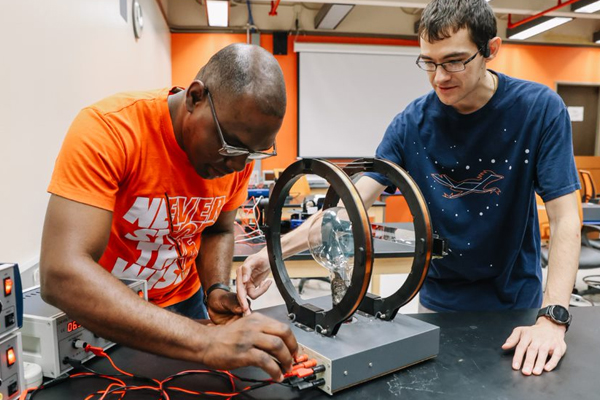
Explore the Physics and Astronomy Department!
Providing students with a solid background in physics and problem-solving skills and equipping them with invaluable research experience to prepare them for their future careers.
Recent Physics and Astronomy Spotlights
View More Spotlights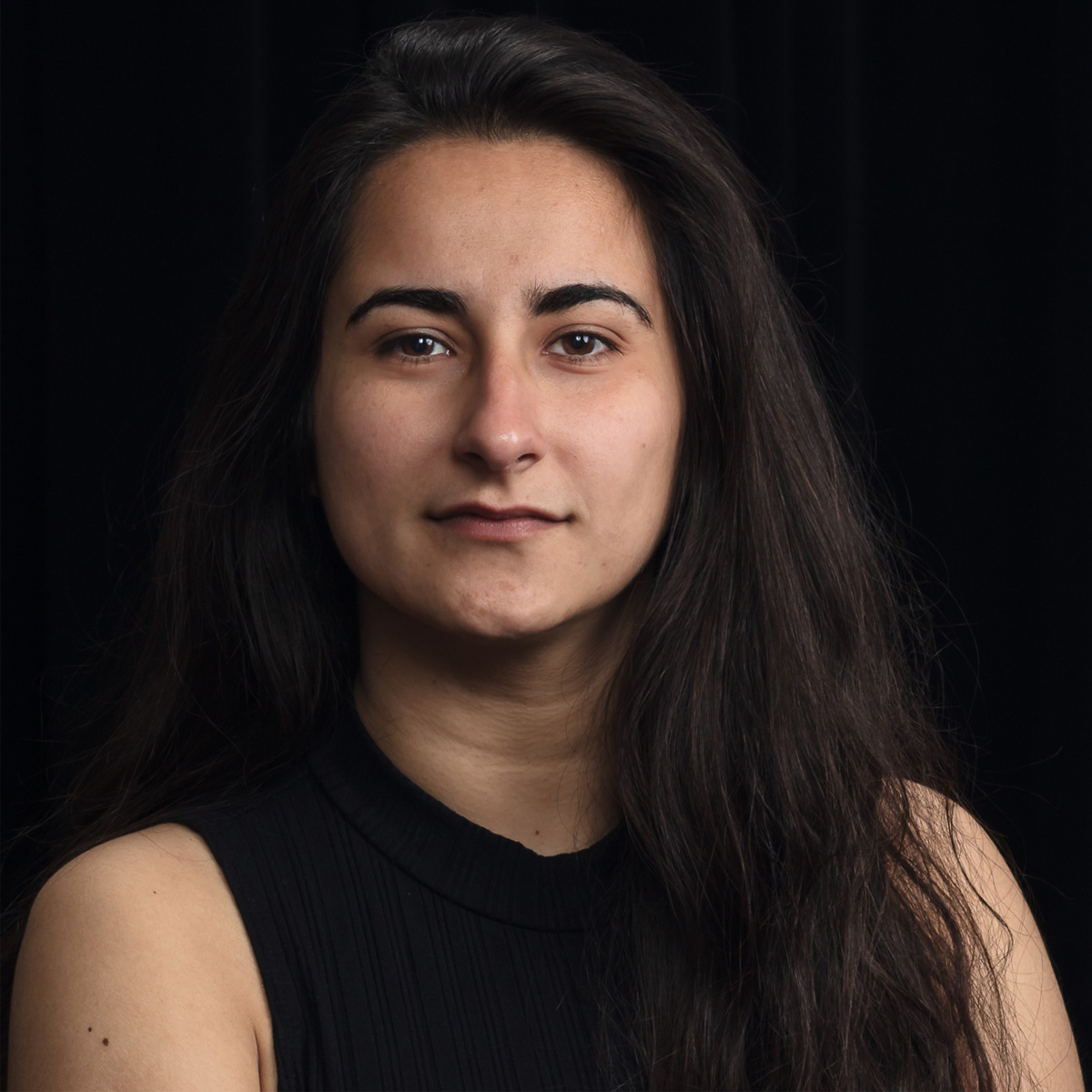
September 19, 2025
Maria Gabriela BoadaPublished by College of Sciences
#ThisIsWhatAScientistLooksLike
